It wouldn’t surprise me to hear that your grade school, middle school or high school teacher wrote a sentence or phrase on the classroom blackboard or whiteboard, asking you to finish the story. You may have done so individually or as a group, but you developed a story with a beginning, middle and ending. Although I can’t recall the starter phrase or sentence that inspired such a story during fifth grade, I do remember writing a story about pulling weeds whose roots dug so deeply into the earth that they yanked me down into a different time and place. Likewise, during a college semester final exam following a short story writing class, each of us pulled starter sentences from a bag, and were charged with writing stories.
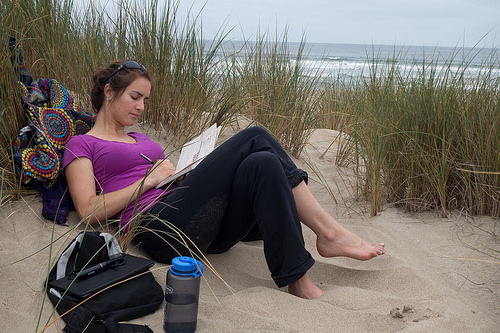
What are writing prompts?
Story starters such as opening sentences or phrases are just one type of writing prompt. Obviously, they unlock your creative gears, helping you to fill a blank page. They can be used to help you continue the story, might represent the middle of the story, or can be where your story ends up. In essence, the purpose of story starters is to help get your writing started. From that point forward, it’s all your own effort to flesh out the rest of the story.
Writing prompts can, of course, appear in other forms besides starter sentences. Photos or illustrations can work exactly the same way. Other times, you may be presented with a what-if scenario, but then have to develop the characters, plot, setting and motivations. When I wrote Destination Imagination Instant Challenges for cre8iowa’s Instant Challenge Library, or on-the-spot creative problem-solving exercises, I sometimes used a matrix approach as a jumping-off point. The basic idea behind this prompt method is to combine one or more elements from charted rows and columns.
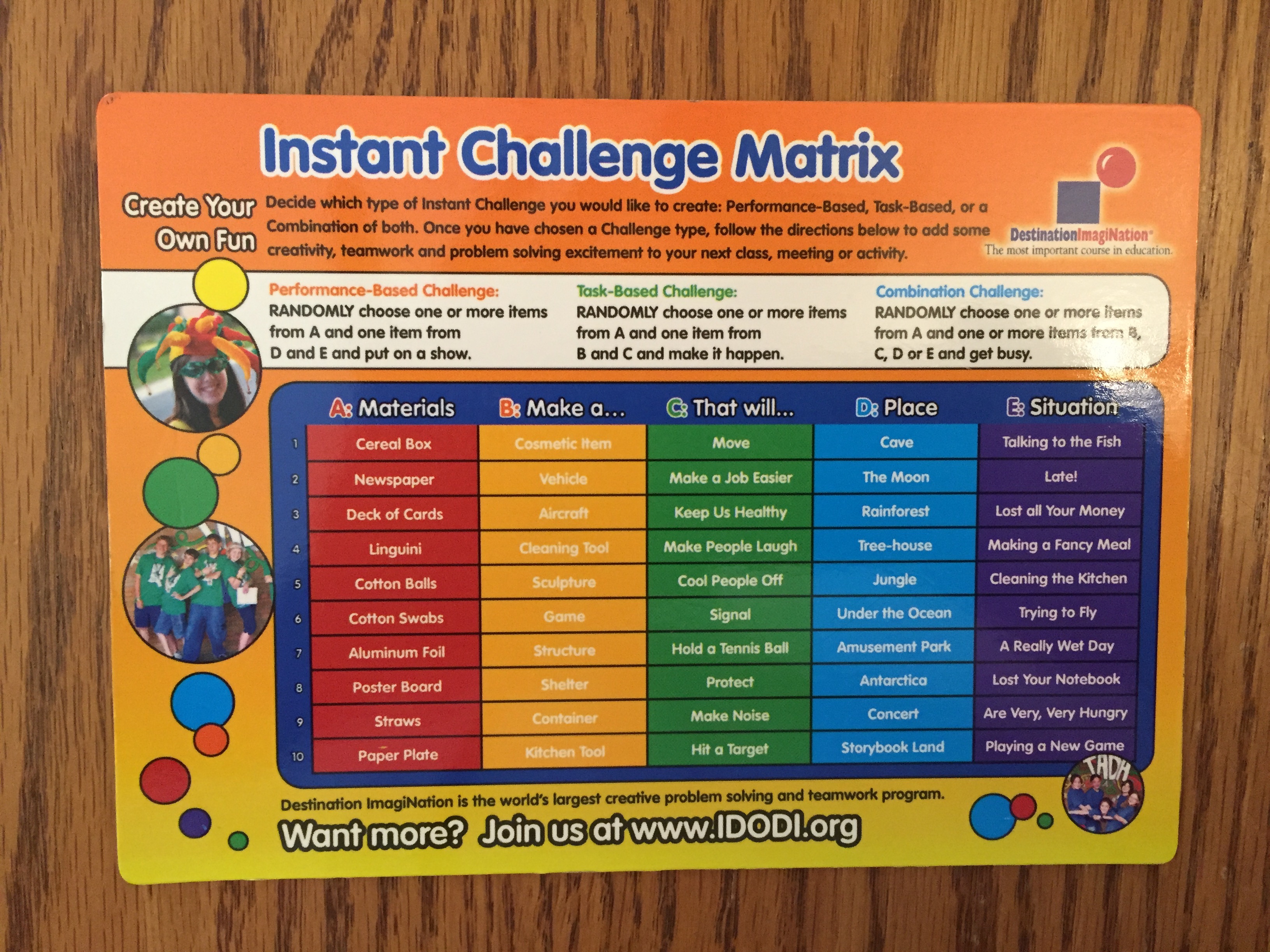
You can also use a flip book divided into categories in much the same way.
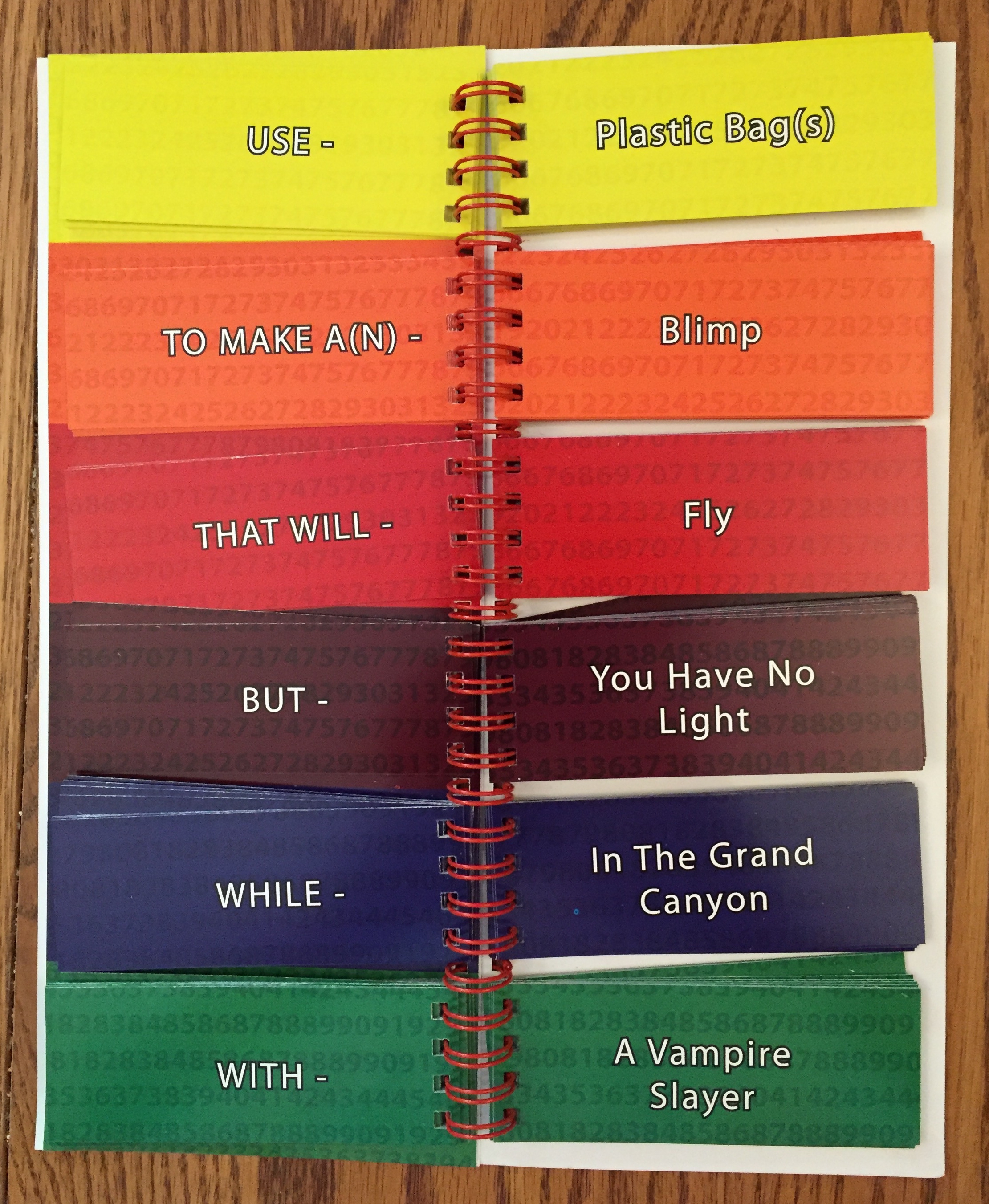
Teachers often use a flip book method, as evidenced by such titles as Silly Starters Write-Abouts or Creative Thinking Write-Abouts.
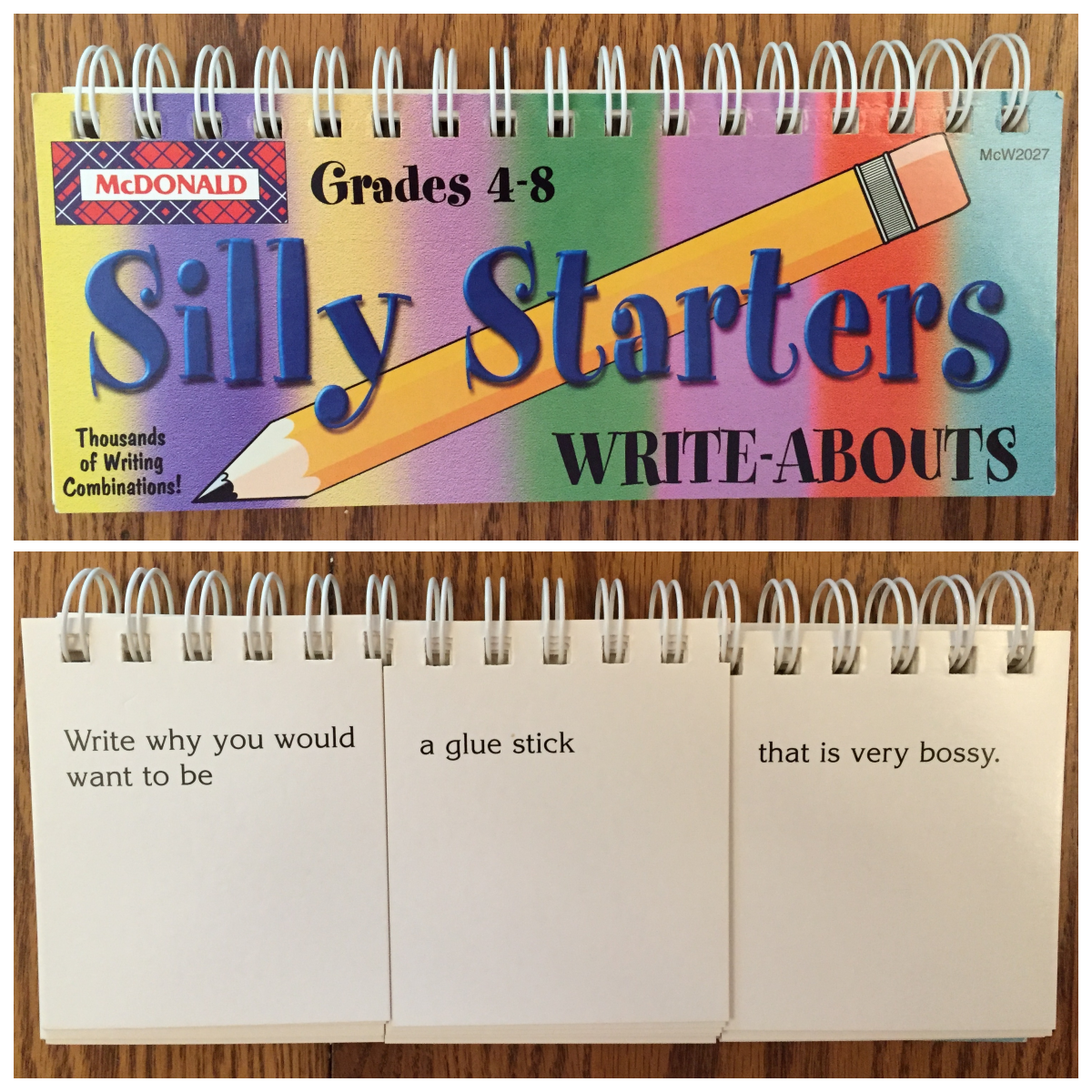
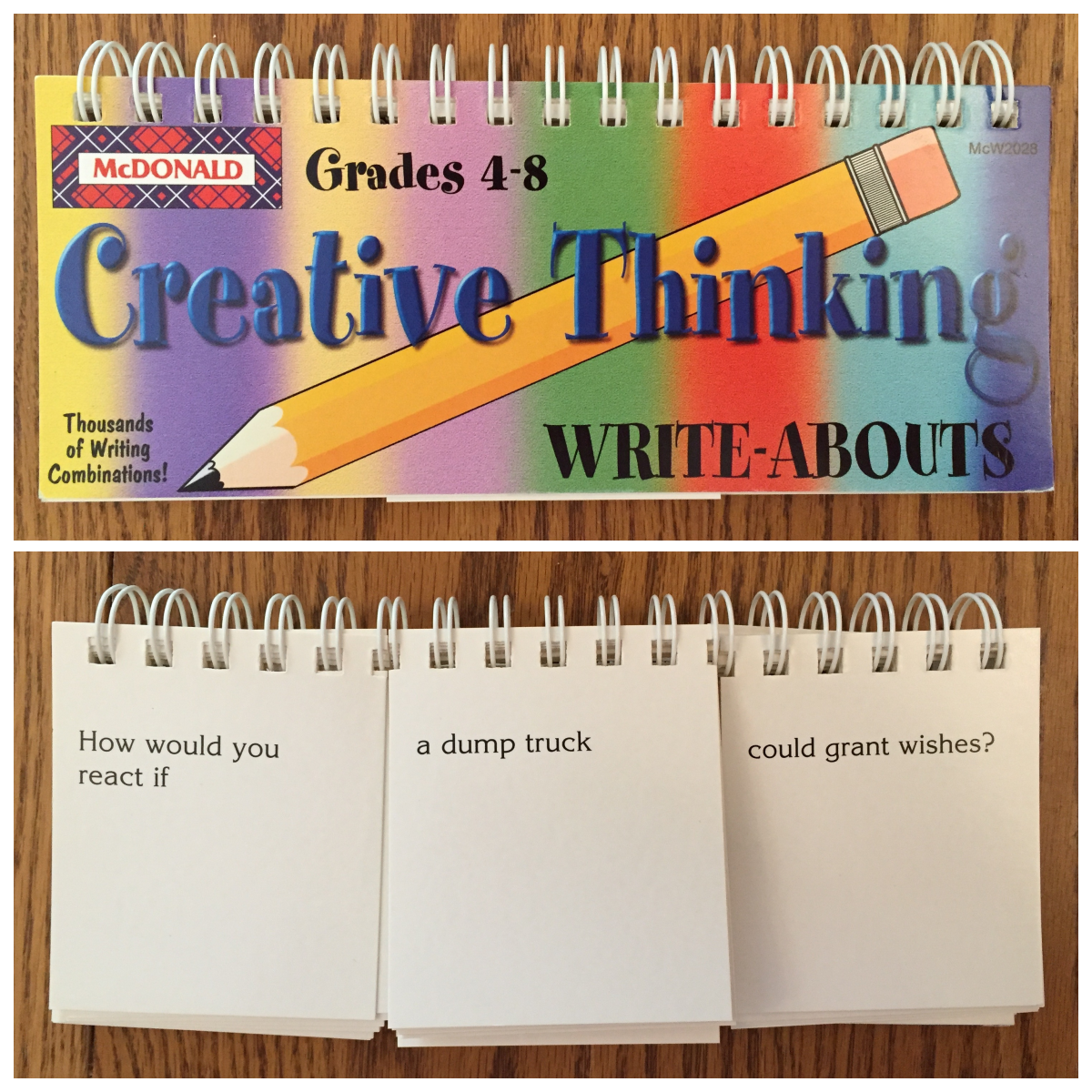
10 reasons writing prompts work
Writing prompts are helpful for the following reasons, whether you blog or write poetry, plays, fiction, non-fiction or something else. Not convinced? Writing prompts can do the following:
- They provide inspiration.
- They challenge you to examine an unfamiliar point of view, experience, or feeling.
- They help you to practice writing basics, focusing on one or more storytelling aspects such as point of view, setting, plot, characterization, dialog, or description.
- They make the process of writing more fun.
- They help you to discover new approaches to your writing by allowing you to experiment with words in a playful environment.
- They help you to build and maintain a regular habit of writing, making it easier for you to tackle larger writing projects.
- They can help you to discover your writing voice.
- They can provide the content for a writing forum, a place where writers can meet in person or online to share and discuss each other’s writing.
- They can provide the platform for a published piece of writing.
- They can help you rediscover your passion for writing, or get past writer’s block.
Where to find writing prompts
Writing prompts can be found everywhere, both for free or for a fee. Newspaper headlines and photos are great story starters, for example. Books such as Jack Heffron’s The Writer’s Idea Workshop and The Writer’s Idea Book provide hundreds of writing prompts. There is, in fact, an entire market devoted to books with writing prompts.
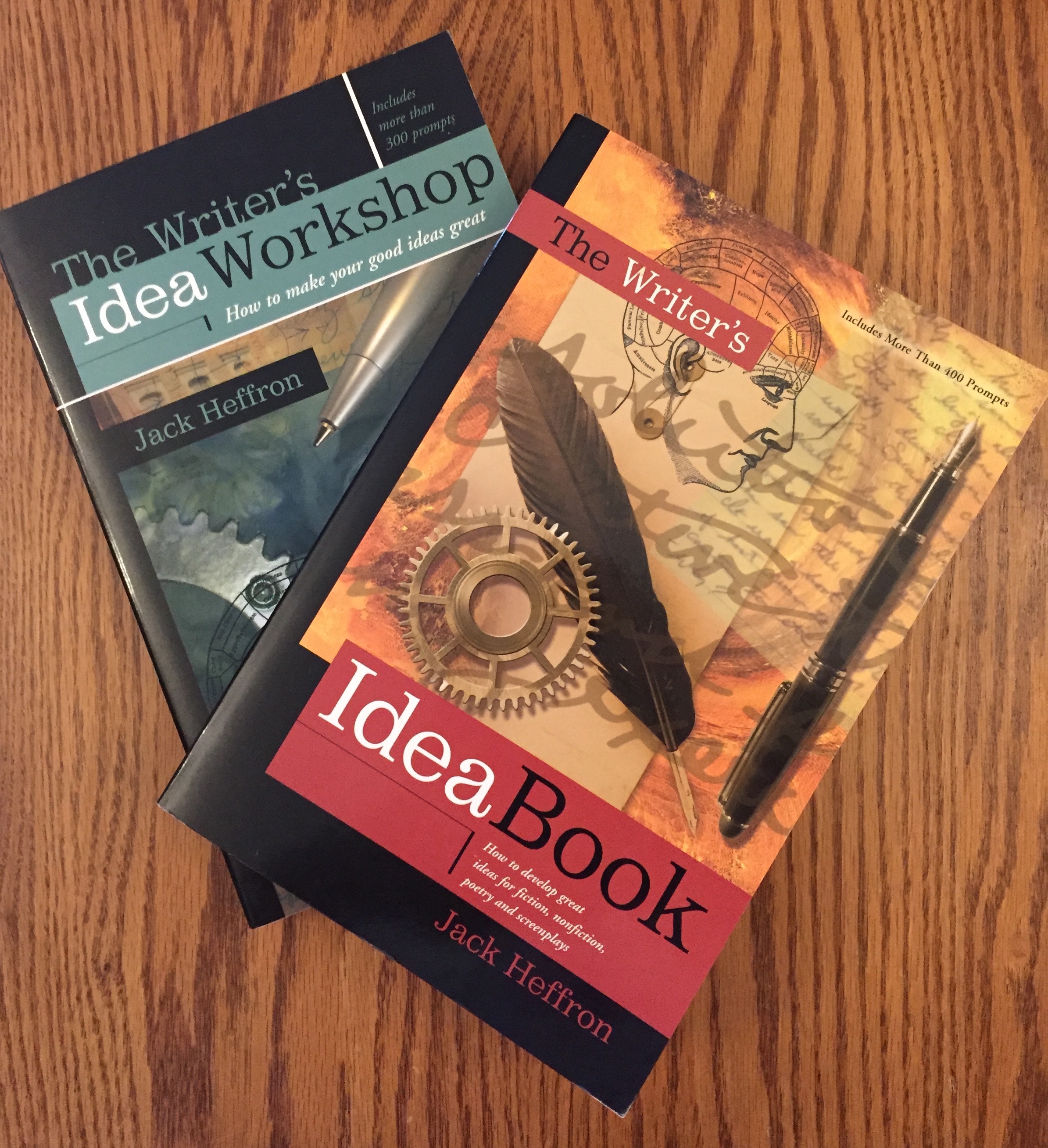
You can also find writing prompts in kit form, which use the principle of games to make writing fun. Jamie Cat Callan’s The Writer’s Toolbox inspires poetry, prose, screenplays, and novels—but can also be helpful to anyone who wants to think outside the proverbial box. The toolbox includes a guidebook; First Sentence Sticks, Non Sequitur Sticks, and Last Straw Sticks; Sixth-Sense Cards, and the Protagonist Game.
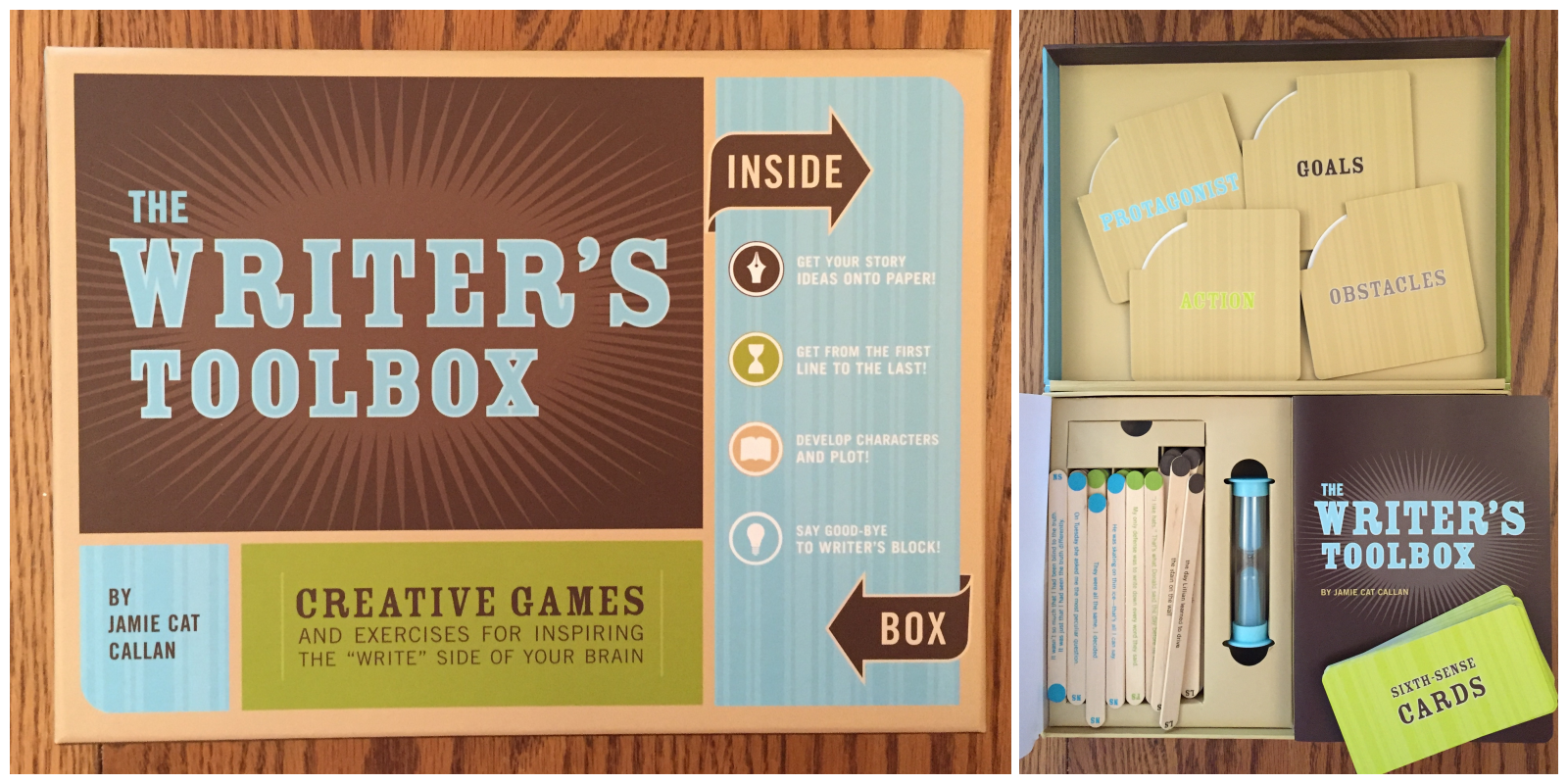
Another writing kit that features writing prompts is Judy Reeves’ The Writer’s Retreat Kit. The kit includes a guidebook telling you how to set up a retreat—with just yourself, or with others—as well as 20 different retreat cards to prompt you to write mindfully about such themes as Writing with the Moon, Maps to Anywhere, Hot Summer Nights, and 17 other enticing themes—each card with 20 different writing prompts, or a total of 400 writing ideas.
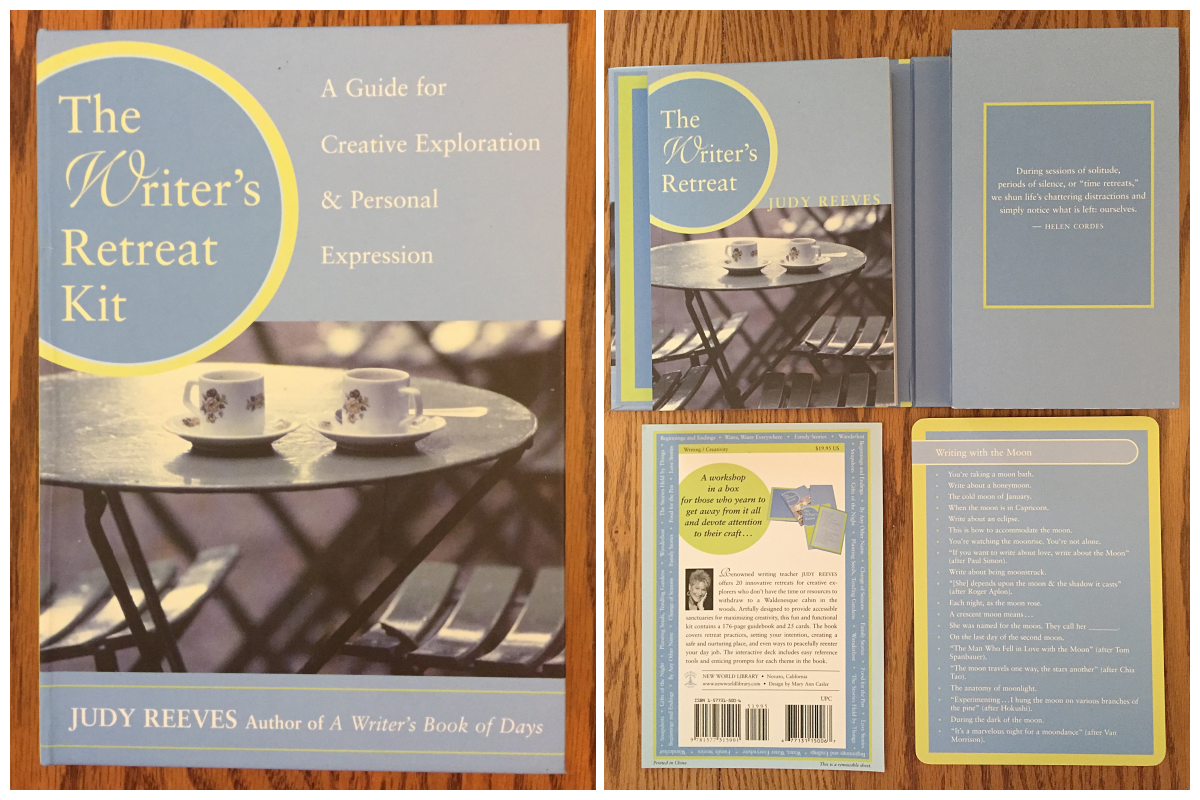
Another place to find writing prompts is the Web. Many of these writing prompts invite you to participate in a community, although that certainly is not a requirement. Four magazines with an online presence provide writing prompts on a regular basis.
- At Writer’s Digest, you can visit editor blogs to locate a weekly supply of writing prompts. Robert Lee Brewer’s Poetic Asides blog features Wednesday Poetry Prompts, while you’ll find Brian Klems’ Weekly Writing Prompts on Fridays.
- At The Writer, you’ll find an entire section devoted to Writing Prompts. Some recent topics include “Mannequins,†“Elementary,†“Nuggets,†and “Fly on the wall.â€
- Poets & Writers offers a poetry prompt on Tuesdays, a fiction prompt on Wednesdays, and a creative nonfiction prompt on Thursdays. Visit The Time is Now for more information.
- The Sun devotes a column to each issue called Readers Write. Readers are asked to address subjects on which they are the authority. Even if you don’t subscribe or submit your writing piece to this literary magazine, you can use the list of topics as writing prompts. Visit Readers Write for the complete list of topics.
As many of you know, I craft books, journals and notebooks by hand and sell them at Mister PenQuin on Etsy. Sometimes people are not sure what they should do with the journals in particular. Writing prompts are the perfect way to fill those blank journal pages, with lots of side benefits. As Emily Wenstrom in How to Use Writing Prompts to Become a Better Writer says, “It turns out, the prompt itself doesn’t matter nearly as much as what you do with it.â€
Do you use writing prompts? If so, what’s your favorite source?
© 2016 Judy Nolan. All rights reserved

Great tips! I didn’t realize there were so many resources available to help writers get over hurdles or stumbling blocks.